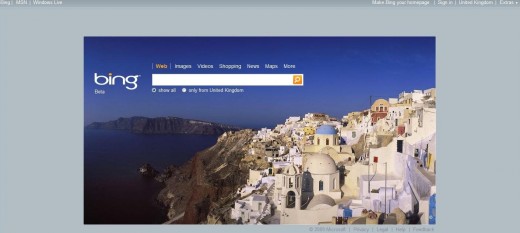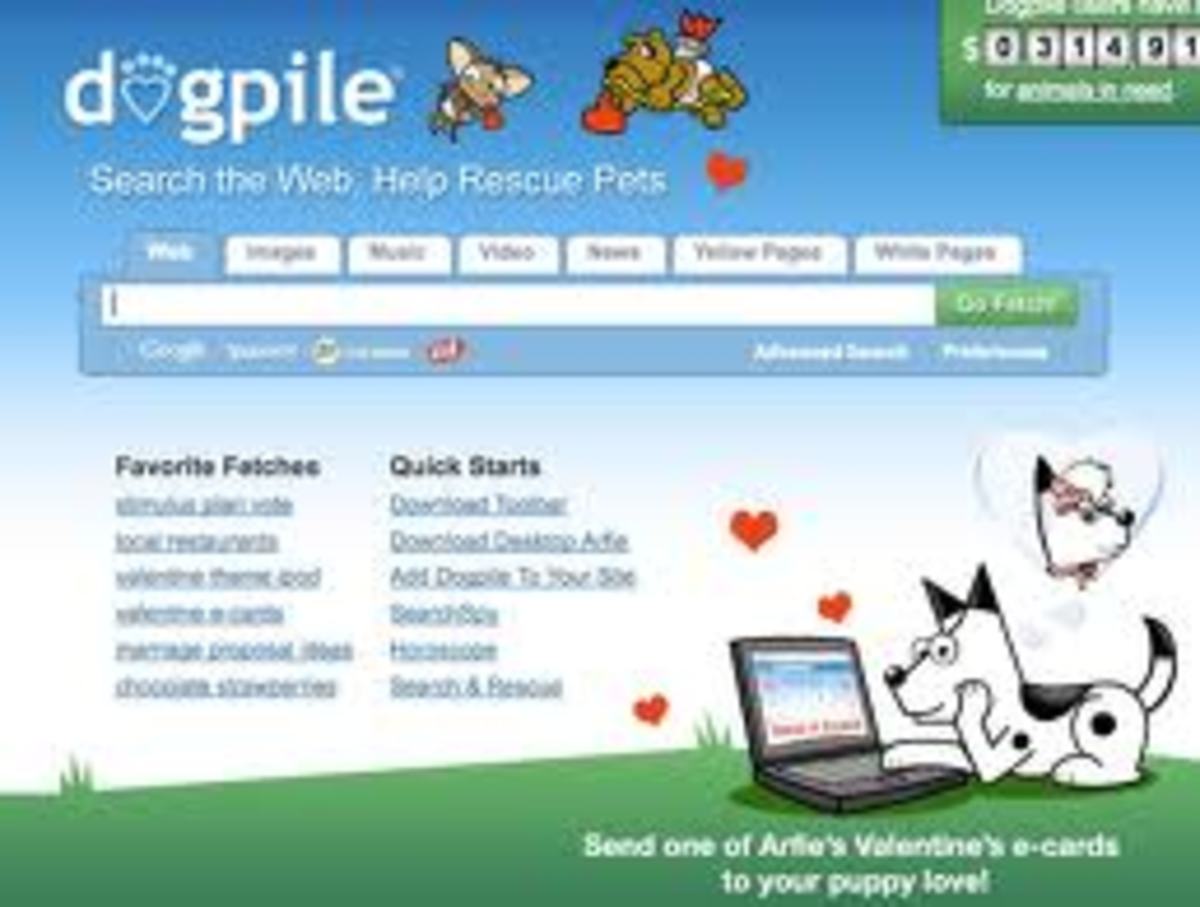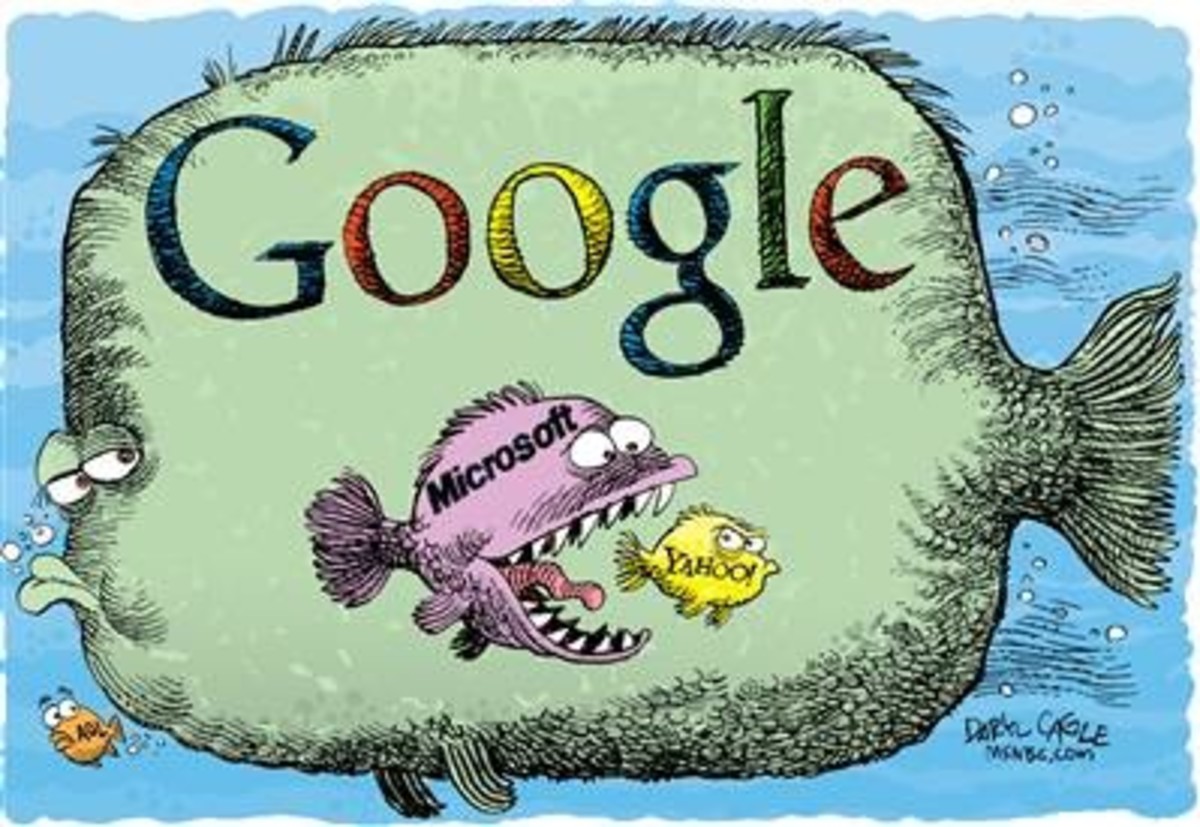- HubPages»
- Technology»
- Internet & the Web»
- Search Engines
How to get your website found in Bing
Bing.com is the new search engine from Microsoft and will replace it's existing Live search offering. Most webmasters have never bothered to do any seo for Microsoft search engines, but they should rethink with the advent of Bing.
Bing comes with several new features. Most search engines will guess at what you want and give you several different types of results on the page - some news, some shopping sites, some videos etc. Bing will do the same, but in the left hand column will list all the categories, so that you can simply click the one you want. For instance, if you type in Susan Boyle, you will get a list of fan-sites and YouTube videos - but click the news category in the sidebar and you will be served with the latest news articles about her with the time they went online. They also list related searches in the left sidebar.
On the right hand side, if you hover your mouse over the results, a pop-up appears giving you a small abstract of the page, so you can tell whether to click it or not.
Bing went live in June 2009, and Microsoft are spending $80 million on an advertising campaign. The new engine has been well received and Bing is closing in on Yahoo. Tech Crunch also reported that Bing users are more likely to click ads than Google users. Therefore it's imperative you know how to perform search engine optimization (seo) for Bing to get your website noticed.
Search Engine Optimization For Bing

Bing's webmaster tools
I recommend joining Bing's webmaster centre which you can access using your Windows Live ID.
Click the button for "Add a site" and enter your URL and then verify your site - I chose to do this by adding a meta tag to the head section of my blog template. Then click on the site you have added, and if the authentication is successful you should be taken to a summary page. It should tell you when your site was last crawled by Bing, backlinks, and there is a keyword tool so you can check where your site ranks within Bing for various keywords.
They also have a handy webmaster forum, where you can ask questions dierctly to the Bing development team.
Microsoft have also released a 24-page paper on how their search engine works and related SEO implications. I would advise webmasters to download the document and read it
How to rank in Bing
Bing's FAQs state that you should do the following on-site seo to rank well in their search engine:
· Target no more than two keywords per page
· Use unique <title> tags on each page
· Use unique <meta> description tags on each page
· Use H1 tags
· Use text navigation links
· Create content for your human visitors, not the Bing web crawler
· Incorporate keywords into URL strings
For backinks, they state that they prefer quality to quantity and that "Backlinks should be relevant to the page being linked to or relevant to your domain if being linked to the homepage." Within the webmaster tools, they rate your backlinks from one to five in a little green bar - the higher the green bar the higher the quality of the link in Bing's eyes. However they don't actually say whether these backlinks should be anchored or not. But all the evidence is that Bing is very keen on anchored backlinks.
Checking the webmaster tools for my blog, I note that they don't recognise all the backlinks I know that I have from using Yahoo's site explorer. That in itself is interesting information - it shows that Bing is quite picky about the backlinks it will take account of.
I will be testing various strategies to rank well on Bing and will be reporting back
From early tests, it looks like having keywords in your URL is important. It's also clear that they are geo-targetting and going for local search - i.e. you will be given results for your locality, based on your IP address. This should mean that webmasters need to consider where they are writing for, geographically, if they want decent results from Bing.
From looking at my analytics, the sites that get traffic from Bing are very strong - page rank 3 at least, with a lot of backlinks. It also looks like Bing favours older domains to newer sites. Finally meta descriptions seem to be very important - Bing uses this in the little summaries that you get when you hover your mouse over the search results.
Update: 31st July 2009
Bing has been going for two months, and here's what I've found analysing my own sites and those of others:
1. Bing doesn't like blogspot - not even blogs over 3 years old with decent pagerank on Google (pagerank 4) and about 20,000 backlinks according to Yahoo's siteexplorer. You will find some blogspots in Bing's results - but buried deep eg on page 6 or higher. There are exceptions - some blogs with a serious amount of high quality backlinks feature on Bing's first page, but if you are an ordinary blogger with an average amount of backlinks, you will struggle.
2. Squidoo lenses - the only lens I've got which has had a hit from Bing is one that has a Google pagerank of 3 (i.e. it has decent backlinks) and the hits were paltry - didn't make double figures in a month. Again it is in Bing's index, but buried deep.
3. Hubpages. This has been my biggest success on Bing. Am getting a regular stream of hits on one hub, which is a Google pagerank 3 (i.e. decent backlinks), and fewer hits on other hubs that are in niches that don't have much materia/competition, and also hubs that have outgoing links to authority sites (such as the Financial Times). Bing seems to approve of authority outgoing links.
Update 8th Aug 2009
Haven't found many Wordpress.com blogs in Bing either (though Bing likes stand-alone domains with wordpress on it). I don't think Bing likes the free web 2.0 blogs.
Have also found a neat tool called Bingle, which displays Google and Bing results side by side for whichever keyword you enter. It's certainly an eye-opener - they both display relevant results, but they choose very different pages.
Update April 2011
Bing appears to deal with backlinks differently from Google. If you are wondering why you aren't ranked in Bing, take the urls of your backlinks and drop them into Bing's search box to see if they are indexed - chances are they aren't. If you are not ranking in Bing, it's a signal to pick up better quality links.
Update June 2011
Bing has now officially integrated with Facebook - they not only see public fan pages (like Google), but see private shares (which Google can't). They say that this won't affect mainstream rankings in their engine, but will affect "wildcards" - a listing popped into the middle of your search with a notation saying that someone in your Facebook network liked it/shared it - and this may be a link that would normally be buried). So - now is the time to get Facebook fanpages set up for your site so that at least you have a presence on Facebook and other Facebook users (who might not be in your network) have a chance to discover your stuff and like it. Bing has written a primer on how to go integrate social and search from their point of view. Click here to read it.









